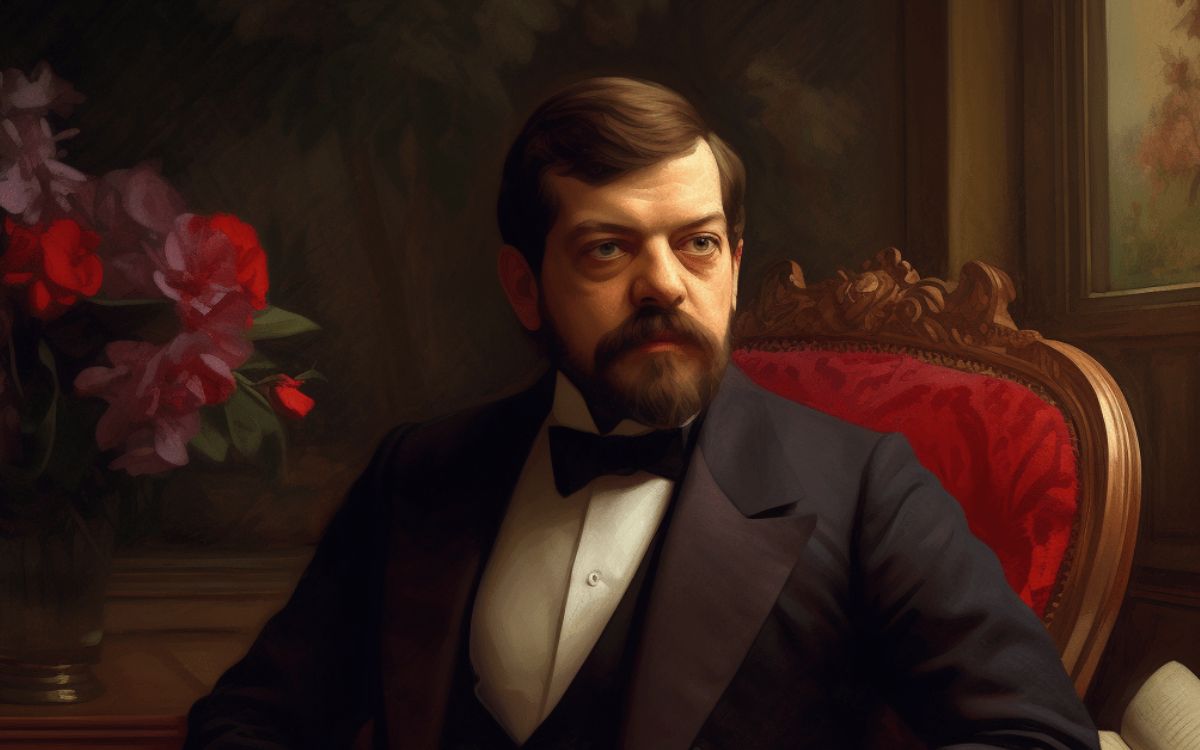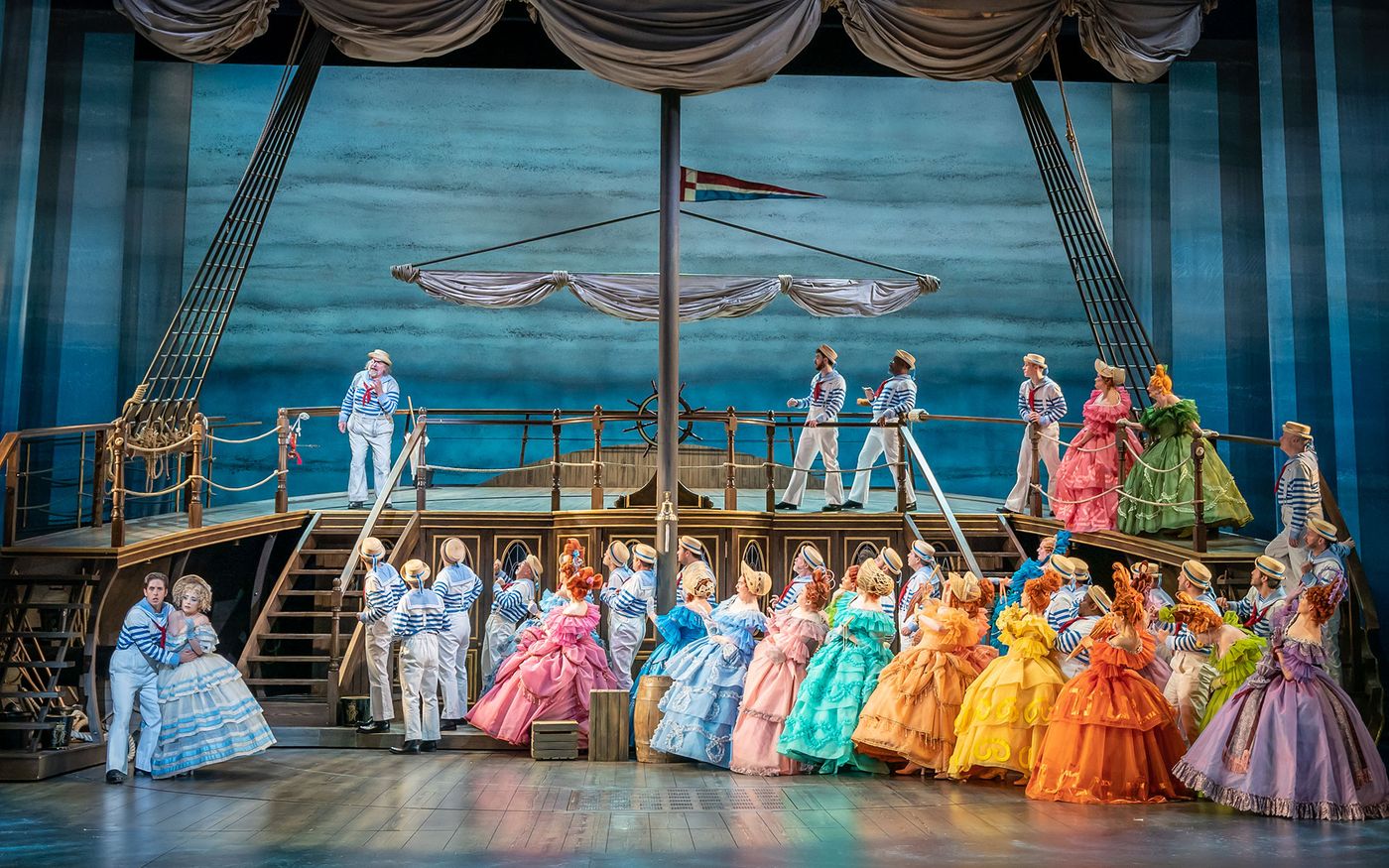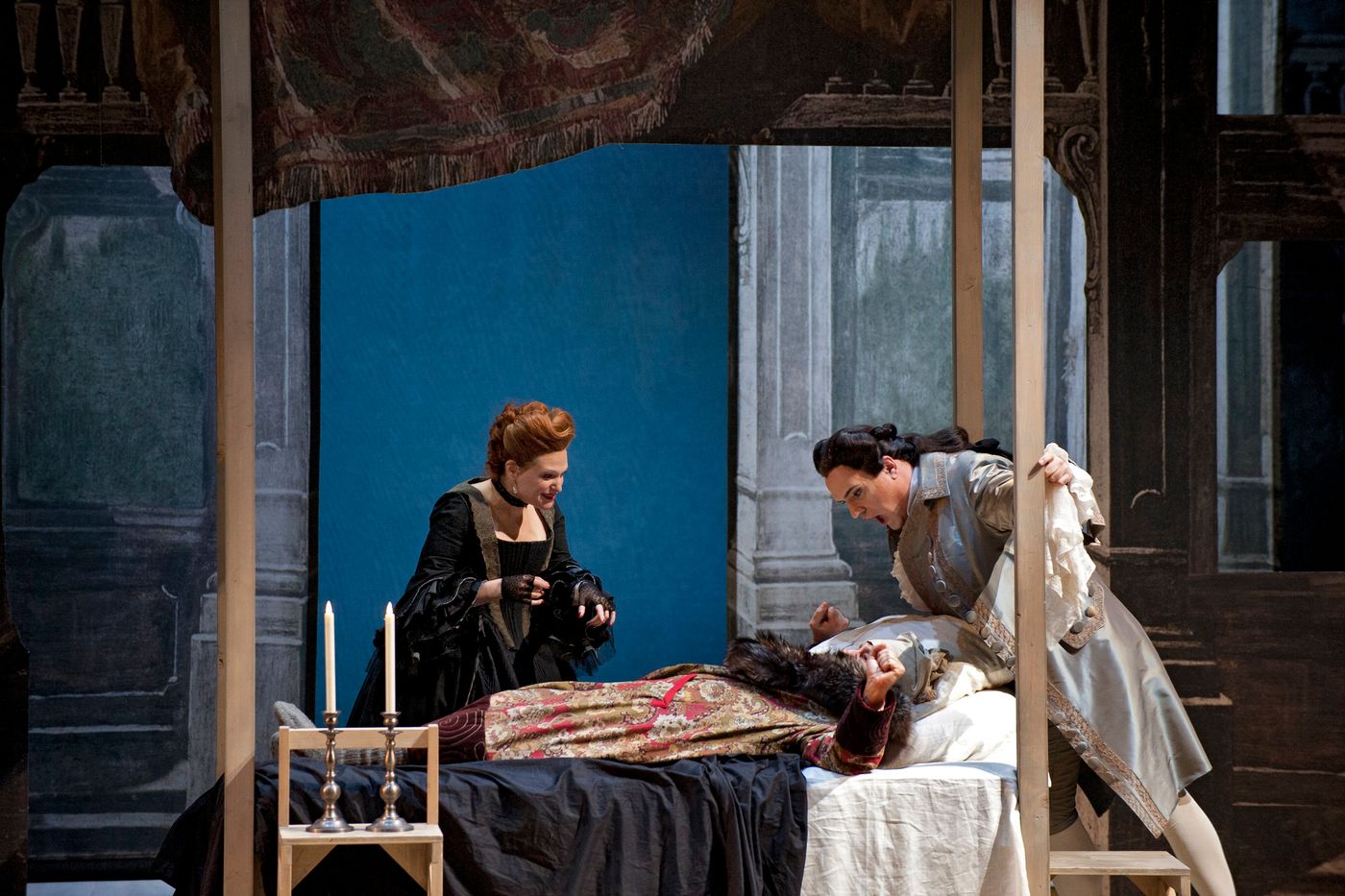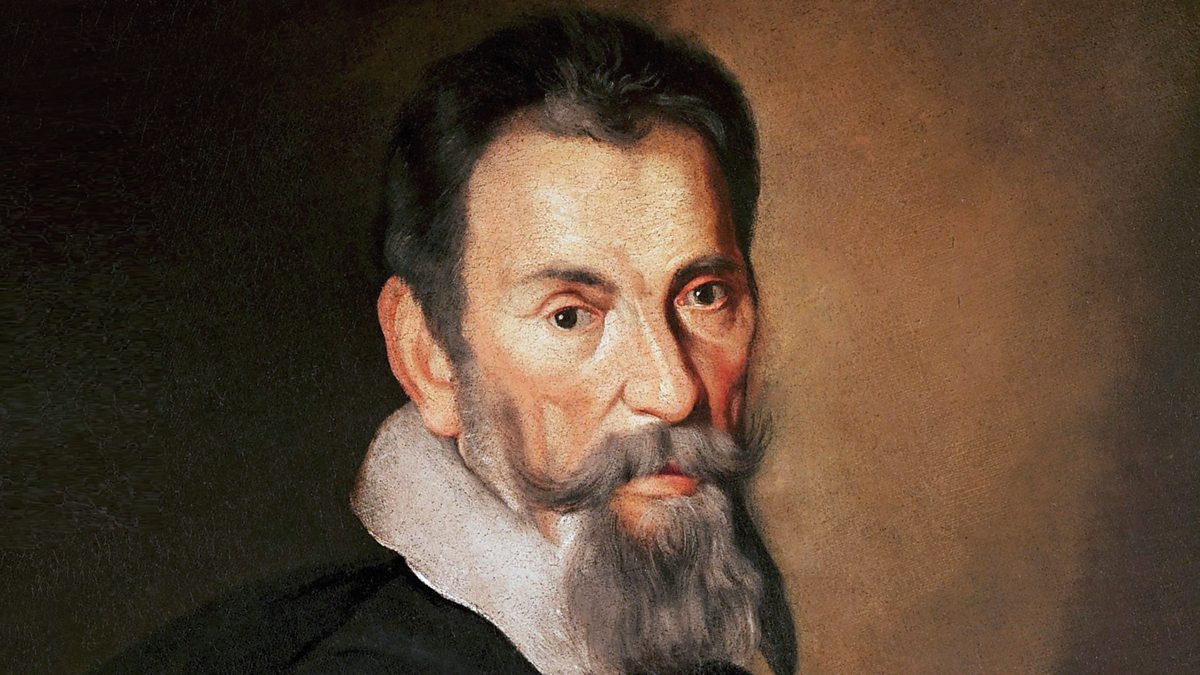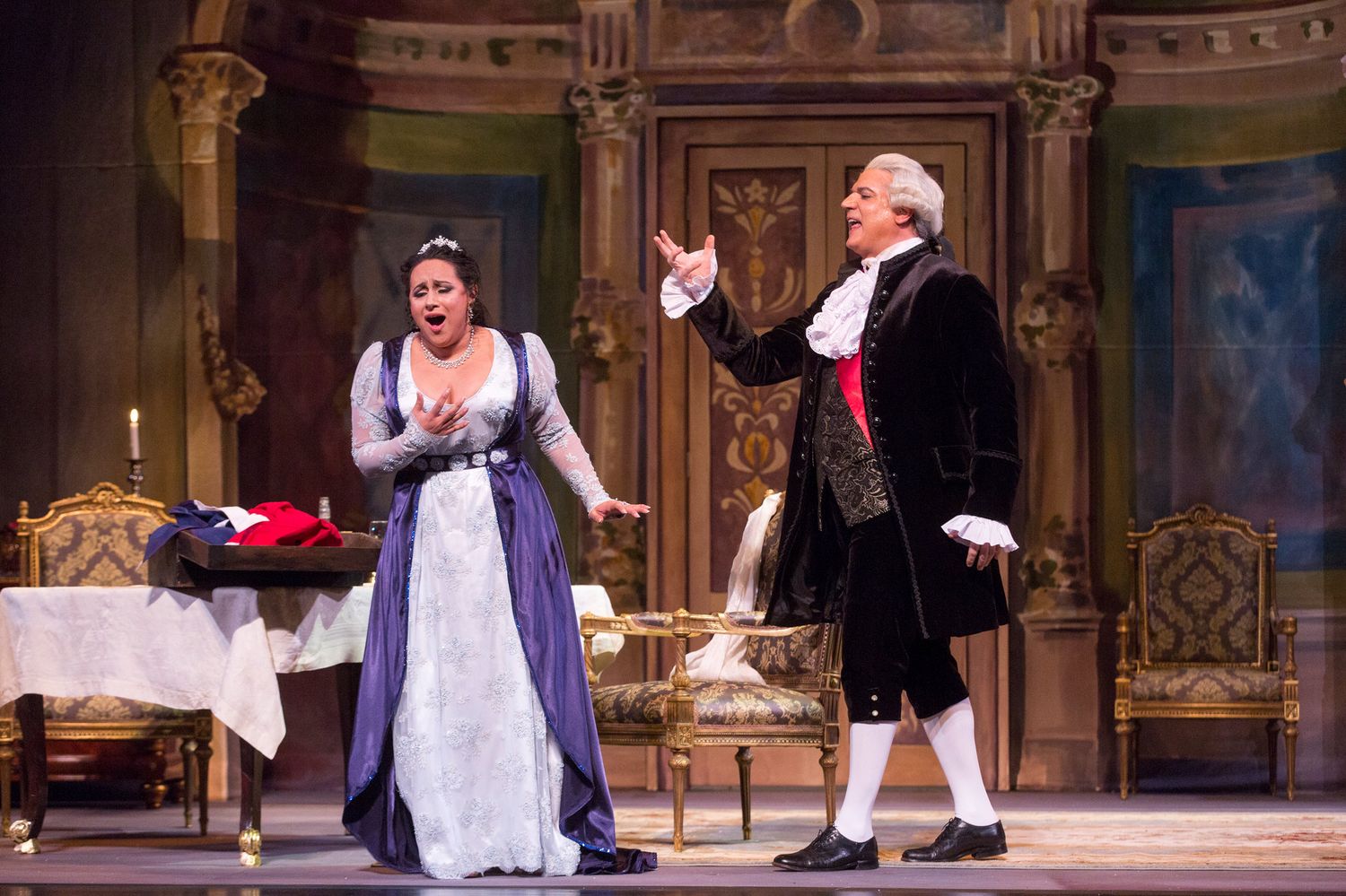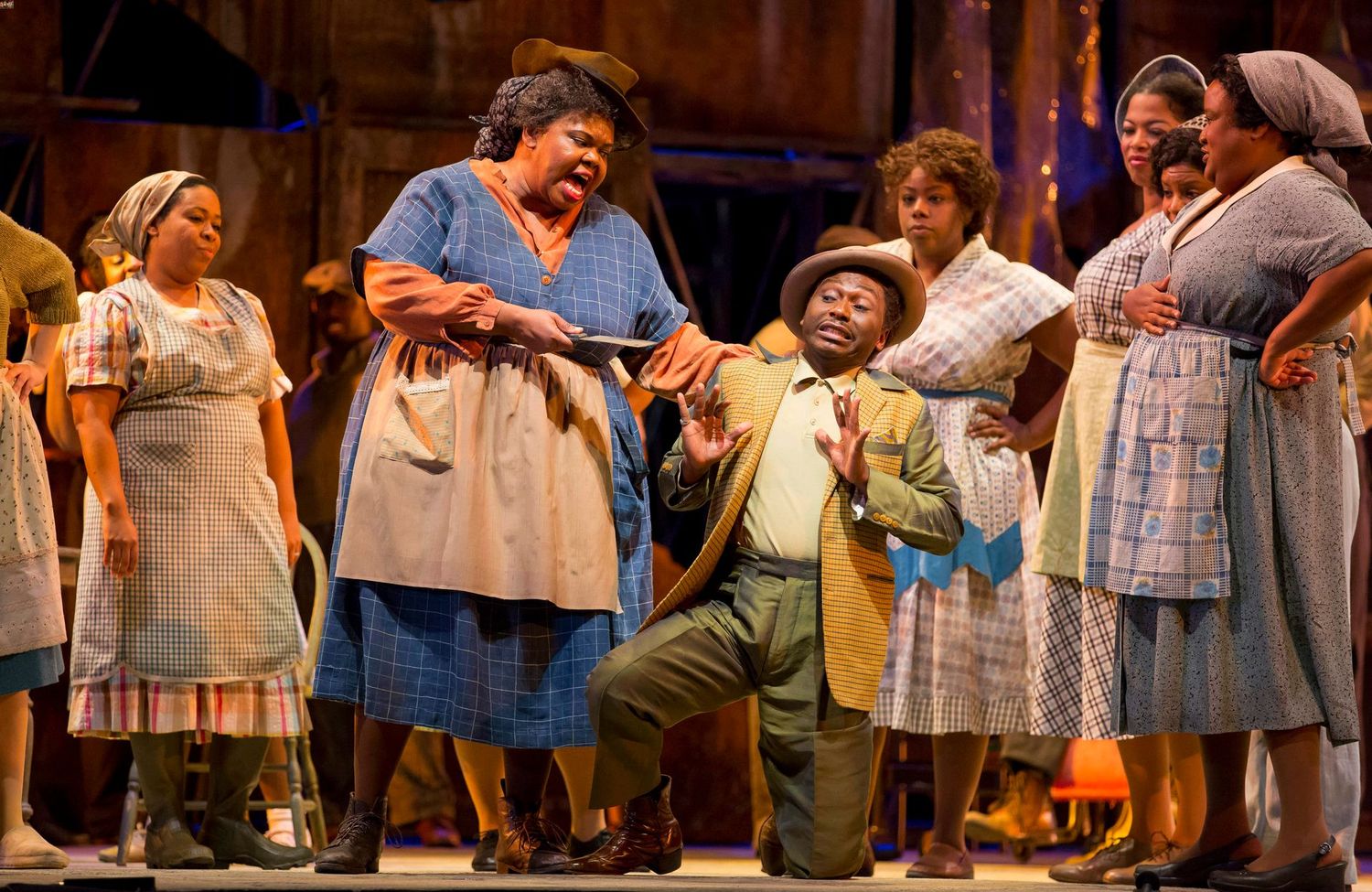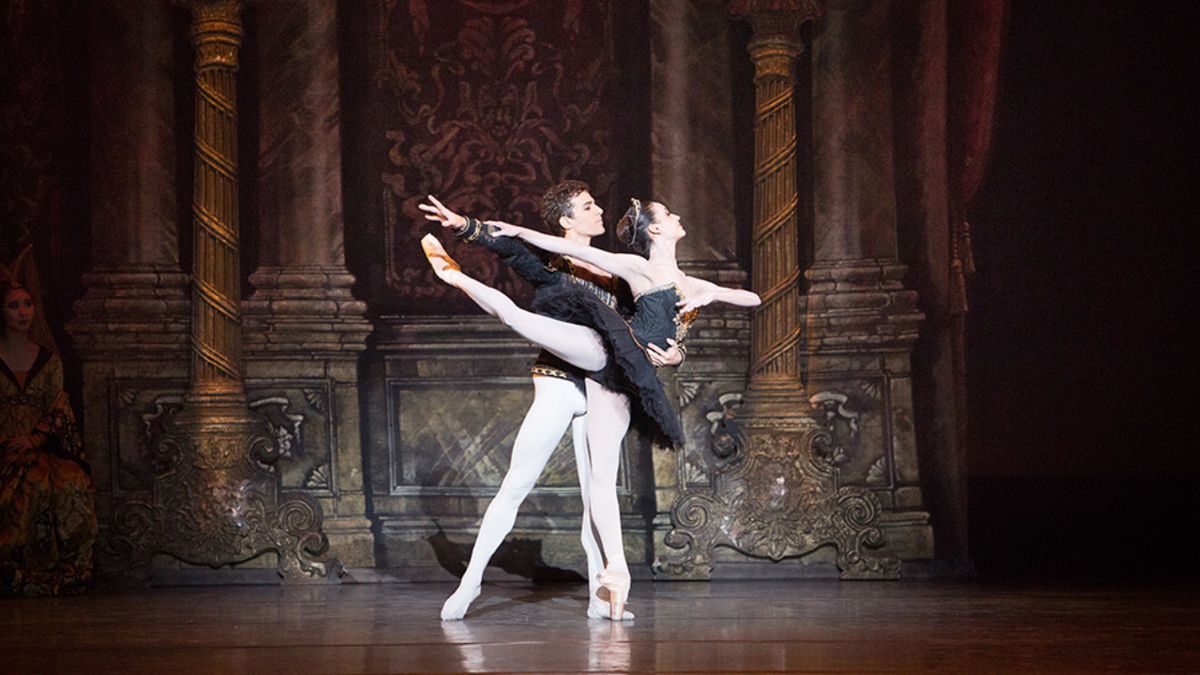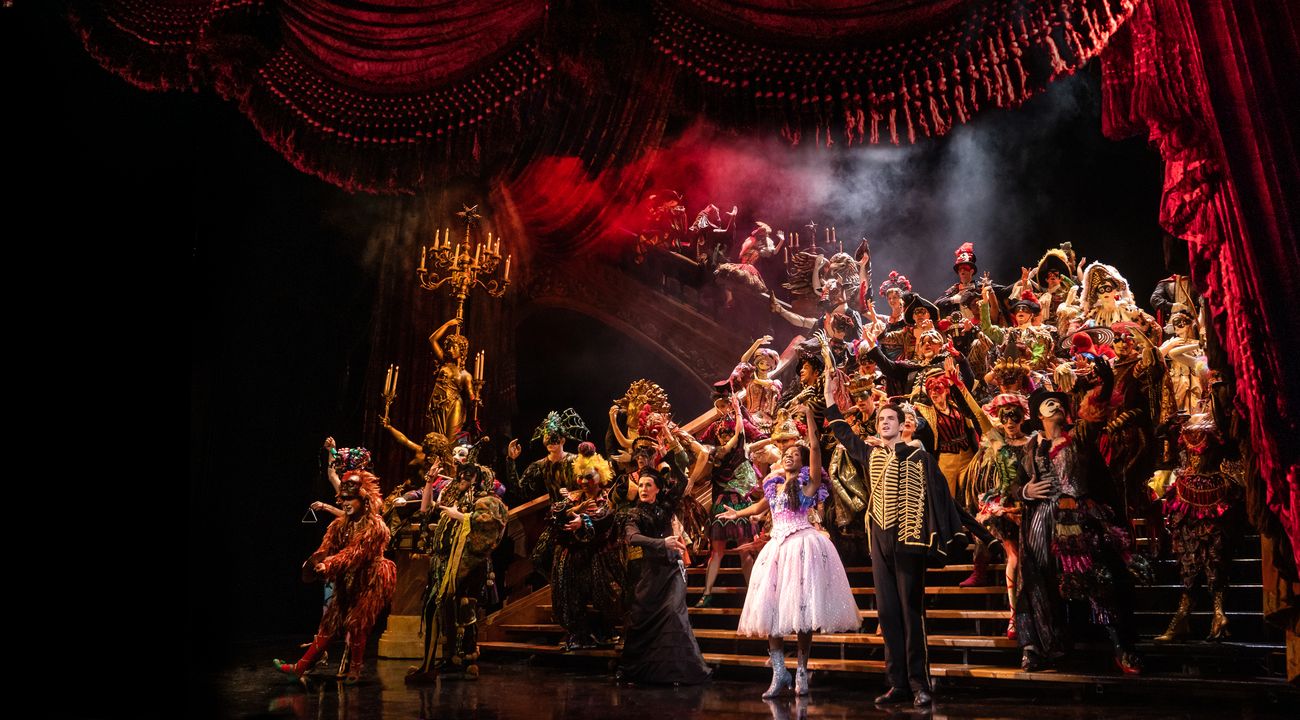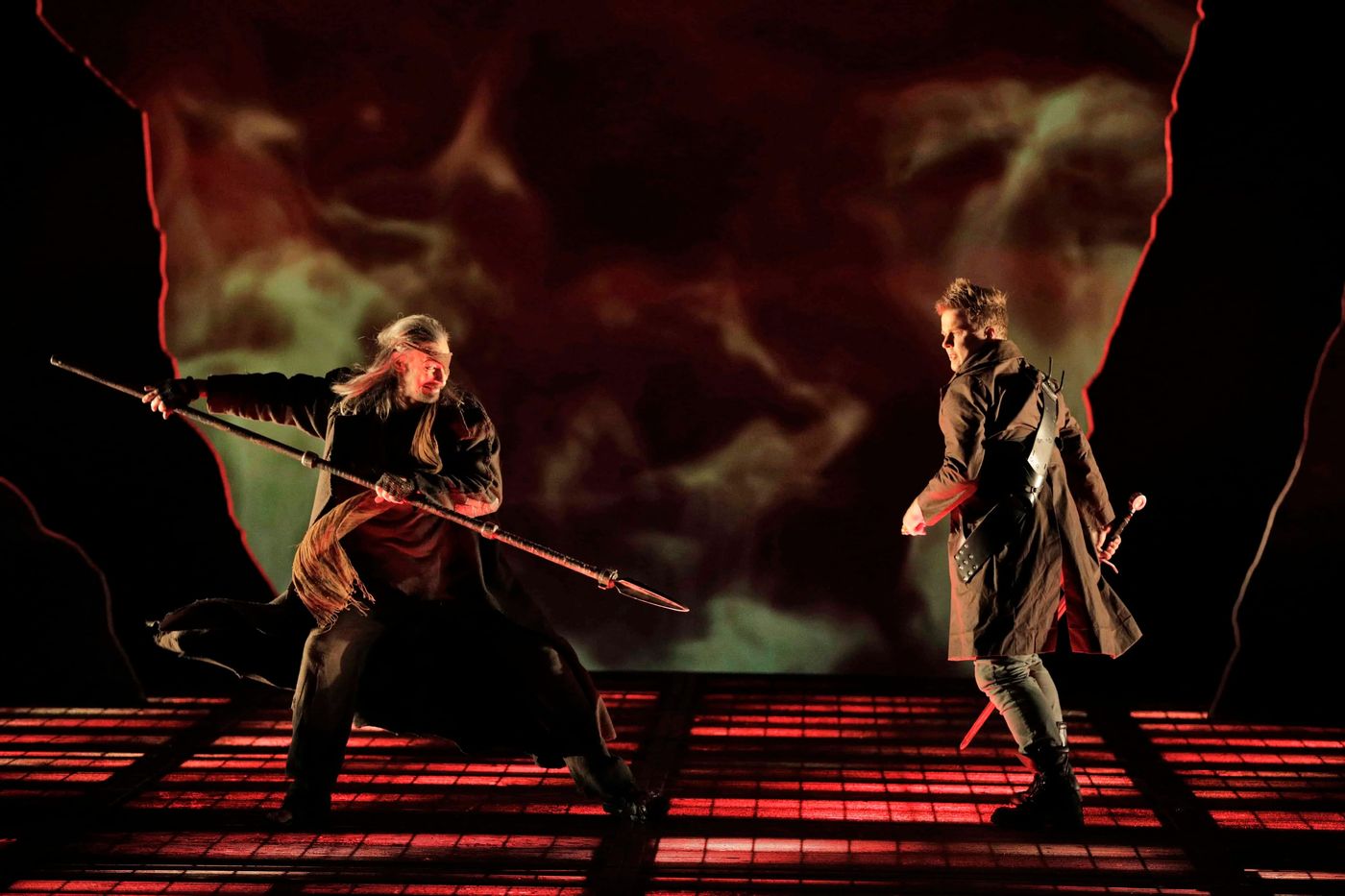Home>Events & Info>Opera>Which Opera Was Written By Elisabeth Jacquet De La Guerre?
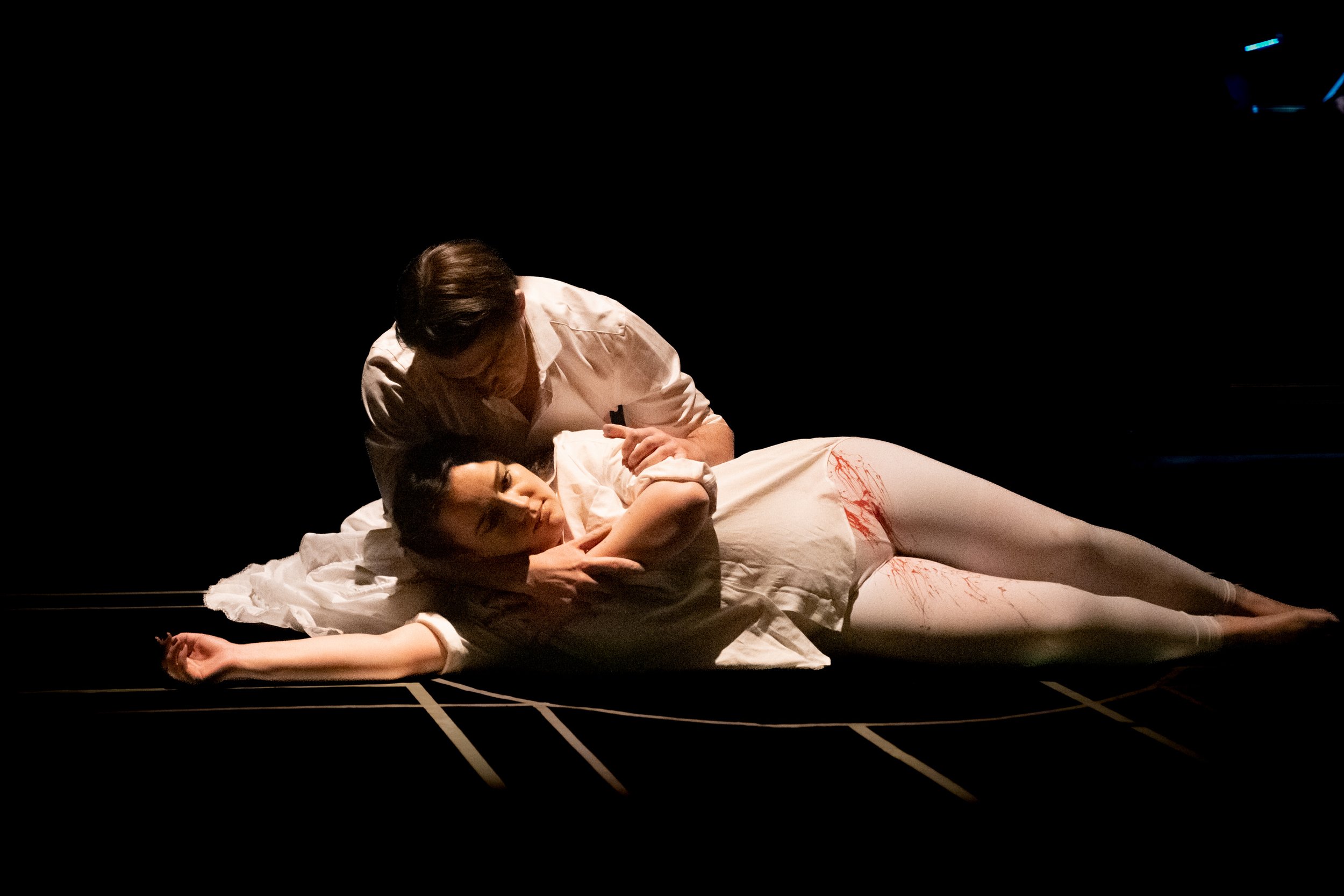

Opera
Which Opera Was Written By Elisabeth Jacquet De La Guerre?
Published: January 7, 2024
Discover the captivating opera composed by Elisabeth Jacquet De La Guerre, a masterful creation that showcases her remarkable talent and innovation.
(Many of the links in this article redirect to a specific reviewed product. Your purchase of these products through affiliate links helps to generate commission for AudioLover.com, at no extra cost. Learn more)
Table of Contents
Introduction
Elisabeth Jacquet de La Guerre was a remarkable French composer and musician who lived during the late 17th and early 18th centuries. She was born into a talented musical family in Paris, and her exceptional musical abilities were recognized at a young age. Jacquet de La Guerre became known for her proficiency in playing the harpsichord, violin, and vocal performance, but her talent and passion extended beyond performing. She also emerged as a prolific composer, producing numerous works in various genres.
During this time period, opera was a popular and influential form of musical entertainment. Composers from all over Europe were producing elaborate and grandiose operas, showcasing their talents and captivating audiences with dramatic narratives and beautiful music. It was within this vibrant musical landscape that Elisabeth Jacquet de La Guerre made her mark.
While many composers of the era were male, Jacquet de La Guerre managed to break through the gender barriers and establish herself as one of the most prominent and respected composers of her time. Her compositions were highly regarded for their sophistication, technical prowess, and emotional depth.
In this article, we will explore the life and musical career of Elisabeth Jacquet de La Guerre, delving into her early influences, her rise to prominence, and her notable works. We will also focus specifically on her opera, a genre that was particularly influential during her lifetime.
Join us as we celebrate the achievements of this remarkable composer and delve into the world of Elisabeth Jacquet de La Guerre’s opera.
Early Life and Musical Training
Elisabeth Jacquet de La Guerre was born in Paris in 1665 into a family of musicians. Her father, Claude Jacquet, was a well-known organist and composer, and her mother, Anne de La Touche, was a skilled singer. Growing up in a musical household, young Elisabeth was surrounded by music from a very early age.
Recognizing her daughter’s natural talent and passion for music, Elisabeth’s parents provided her with comprehensive musical training from a young age. She received instruction in a wide range of musical disciplines, including singing, keyboard, and violin. Under the guidance of her father, she quickly honed her skills and emerged as a prodigious musician.
As a teenager, Elisabeth began performing in public, captivating audiences with her exceptional abilities. Her encyclopedic knowledge of music theory and her extraordinary technical proficiency set her apart from her contemporaries. Her ability to compose and perform intricate and emotionally resonant music at such a young age was nothing short of extraordinary.
In addition to her musical training, Elisabeth Jacquet de La Guerre received a well-rounded education, which was quite uncommon for women of her time. She studied subjects such as literature, languages, and mathematics, which further enriched her artistic sensibilities and contributed to her growth as a composer.
Jacquet de La Guerre’s talent and potential did not go unnoticed in the musical circles of Paris. She was fortunate enough to catch the attention of King Louis XIV, known for his patronage of the arts. Impressed by her exceptional musical abilities, he became a dedicated supporter, providing her with opportunities and resources to further her career.
Elisabeth Jacquet de La Guerre’s early life and musical training laid the foundation for her future success. Her exceptional talent, combined with her comprehensive musical education and the support of influential patrons, set the stage for her rise as one of the most remarkable composers of her time.
The Rise of Elisabeth Jacquet de La Guerre
As Elisabeth Jacquet de La Guerre entered adulthood, her talents as a composer and musician began to flourish. She quickly gained recognition in the musical world of Paris, establishing herself as a prominent figure in the French Baroque era.
One of the key factors contributing to her rise was her association with the court of King Louis XIV. The king’s support and patronage provided her with numerous opportunities to showcase her skills and gain visibility in the music industry. She was often invited to perform at the royal court, where her compositions and performances were met with admiring audiences and critical acclaim.
Jacquet de La Guerre’s compositions exhibited a unique blend of French and Italian musical influences, showcasing her ability to seamlessly integrate different styles and techniques. Her music was characterized by its expressive melodies, intricate harmonies, and elaborate ornamentation. She had a profound understanding of the nuances of various musical forms, such as the sonata, suite, and cantata, which she expertly utilized in her compositions.
In addition to her exceptional compositional talent, Elisabeth Jacquet de La Guerre was also renowned for her skills as a performer. She was an accomplished harpsichordist and violinist, regularly captivating audiences with her virtuosic playing. Her performances were known for their emotional depth, technical brilliance, and impeccable sense of timing.
As her reputation spread, Jacquet de La Guerre gained recognition beyond the borders of France. Her works were published and circulated in other European countries, further establishing her influence and reputation as a composer of extraordinary talent.
Despite facing societal obstacles as a woman in a predominantly male-dominated field, Jacquet de La Guerre’s perseverance and artistic brilliance allowed her to break through these barriers. She became a shining example of female empowerment and achievement in the arts during a time when women’s contributions were often overlooked or dismissed.
Elisabeth Jacquet de La Guerre’s ascent to prominence was a testament to her exceptional talent, dedication, and the support she received from influential patrons. Her rise in the music world was a pivotal moment in history, as it highlighted the significance of gender equality and the power of artistic expression.
Notable Works of Elisabeth Jacquet De La Guerre
Elisabeth Jacquet de La Guerre’s prolific career as a composer yielded an impressive body of work, encompassing various genres and styles. Her compositions were marked by their elegance, emotional depth, and technical brilliance, making her a respected figure in the French Baroque era. Here are some notable works by Jacquet de La Guerre:
-
First Book of Harpsichord Pieces (1687): This collection of harpsichord pieces was Jacquet de La Guerre’s first published work. It showcased her remarkable skill as a composer and performer and established her as an innovator in the genre. The pieces within this collection demonstrated her ability to blend French and Italian influences and displayed her virtuosic command of the instrument.
-
Violin Sonatas (1707): Jacquet de La Guerre’s violin sonatas were highly regarded for their technical sophistication and expressive melodies. In this collection, she pushed the boundaries of the violin repertoire with her complex harmonies and lyrical themes. These sonatas demonstrated her deep understanding of the instrument and her ability to showcase its expressive range.
-
Cantatas for Voice and Instrument (1694): Jacquet de La Guerre composed a number of cantatas, vocal works accompanied by instruments, displaying her mastery of vocal composition and the art of storytelling through music. Her cantatas featured richly textured harmonies and poignant melodies, exploring themes of love, loss, and devotion.
-
Opera Omphale (1698): Jacquet de La Guerre’s opera, Omphale, was a significant achievement in her career. It was one of the few operas composed by a woman during this era. The opera showcased her ability to weave together intricate vocal lines, dramatic storytelling, and captivating melodies. Although the complete score of Omphale has been lost, its success and impact at the time are well-documented.
-
Chamber Music: Jacquet de La Guerre composed numerous chamber music works, including trio sonatas and suites. Her chamber music highlighted her talent for creating intimate and intricate musical dialogues between different instruments. These compositions demonstrated her skill in balancing melodic beauty, structural coherence, and expressive depth.
These notable works by Elisabeth Jacquet de La Guerre exemplify her immense talent and artistic vision. Her compositions continue to be admired and performed today, symbolizing her enduring legacy as one of the most accomplished composers of the Baroque era.
The Opera Written by Elisabeth Jacquet De La Guerre
Elisabeth Jacquet de La Guerre’s opera, Omphale, is a significant and remarkable composition in her body of work. Written in 1698, Omphale stands as one of the few operas composed by a woman during the Baroque period, highlighting Jacquet de La Guerre’s groundbreaking contributions to the genre.
Omphale tells the mythological story of the Queen of Lydia, Omphale, and her relationship with the legendary hero Hercules. The opera explores themes of power, love, and the complexities of human nature. While the complete score of Omphale is unfortunately lost, contemporary accounts describe it as a masterful work that showcased Jacquet de La Guerre’s remarkable talent as both a composer and a storyteller.
The opera’s libretto was written by Jean Gallot, a renowned poet and playwright of the time. Together, Gallot and Jacquet de La Guerre crafted a compelling narrative that brought the characters and their emotions to life through music. The libretto was carefully set to music, with Jacquet de La Guerre’s compositions capturing the nuances of the story and characters with inventive and expressive melodies.
Omphale incorporated elements of both French and Italian operatic styles. It exhibited the French grand style, characterized by its lyrical and elaborate vocal lines, as well as the Italian influence, which emphasized virtuosic singing and dramatic flair. Jacquet de La Guerre’s compositional style showcased her ability to blend these two traditions, creating a unique and captivating musical experience.
While Omphale was well-received and critically acclaimed at the time of its premiere, it is unfortunate that the complete score has been lost to history. However, the opera’s impact and significance are still recognized today, giving us insight into Jacquet de La Guerre’s skill in capturing the drama, emotion, and complexities of storytelling through music.
Despite the challenges faced by women composers in the male-dominated musical landscape of the time, Jacquet de La Guerre’s opera, Omphale, stands as a testament to her talent, innovation, and pioneering spirit. It serves as a reminder of her lasting legacy in the history of opera and the enduring power of her musical contributions.
Reception and Legacy of her Opera
Elisabeth Jacquet de La Guerre’s opera, Omphale, made a significant impact in the musical world of the late 17th century. Although the complete score of the opera has been lost, contemporary accounts and reviews provide insights into its initial reception and enduring legacy.
At the time of its premiere, Omphale received widespread admiration and critical acclaim. Scholars and audiences marveled at Jacquet de La Guerre’s ability to compose intricate and emotionally charged music that effectively conveyed the dramatic narrative of the opera. The blending of French and Italian musical influences, along with the captivating libretto by Jean Gallot, created a unique and memorable operatic experience.
The success of Omphale solidified Jacquet de La Guerre’s reputation as a composer with exceptional skill and talent. It brought her further recognition from influential figures in the music world, and she became known as one of the leading composers of her time. Her accomplishments as a female composer in a male-dominated field were widely celebrated.
Despite the loss of the complete score, the legacy of Omphale lives on. Its influence and significance are evident in the subsequent operatic works of other female composers who followed in Jacquet de La Guerre’s footsteps. She paved the way for other women to embark on careers as composers and shattered the notion that women were incapable of creating complex and compelling operatic works.
Jacquet de La Guerre’s achievements in opera and her contributions to the musical landscape have gained renewed recognition in recent years. Scholars and performers have sought to revive and recreate her works, shedding light on her mastery of composition and her unique voice as a composer. Through these efforts, her opera Omphale has been brought back to life, igniting interest in her music and generating appreciation for her artistic contributions.
Elisabeth Jacquet de La Guerre’s opera stands as a testament to her genius and continues to inspire musicians and audiences alike. It serves as a reminder of her enduring legacy as a trailblazing female composer whose contributions to the world of opera have left an indelible mark in musical history.
Conclusion
Elisabeth Jacquet de La Guerre, with her exceptional talent and groundbreaking contributions to the world of music, cemented her place as one of the most remarkable composers of the late Baroque era. Her remarkable abilities as a composer, performer, and innovator allowed her to break through the societal barriers that constrained women in the arts during her time.
From her early life and musical training, Jacquet de La Guerre demonstrated an undeniable passion for music. Her dedication to honing her skills and her comprehensive education set the stage for her rise to prominence. Supported by influential patrons and recognized by audiences, she established herself not only as a skilled musician but also as a prolific composer.
Jacquet de La Guerre’s catalog of works is diverse and impressive, featuring compositions for various instruments and encompassing different genres. Her opera, Omphale, stands as a remarkable achievement, showcasing her ability to weave together drama, emotion, and music.
The legacy of Elisabeth Jacquet de La Guerre endures through her compositions and her influence on future generations of composers. Her innovative approach to composition, blending French and Italian styles, and her ability to capture the essence of storytelling through music have made her a revered figure in the history of classical music.
In conclusion, Elisabeth Jacquet de La Guerre’s contributions to opera and music as a whole are truly extraordinary. She defied societal expectations, broke gender barriers, and left a lasting impact on the musical landscape of her time. Today, her music continues to captivate audiences and inspire aspiring musicians, highlighting the importance of recognizing and celebrating the achievements of women in the arts.

